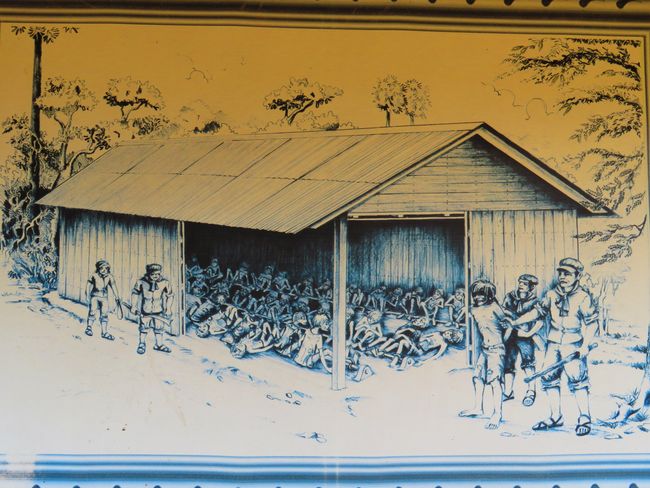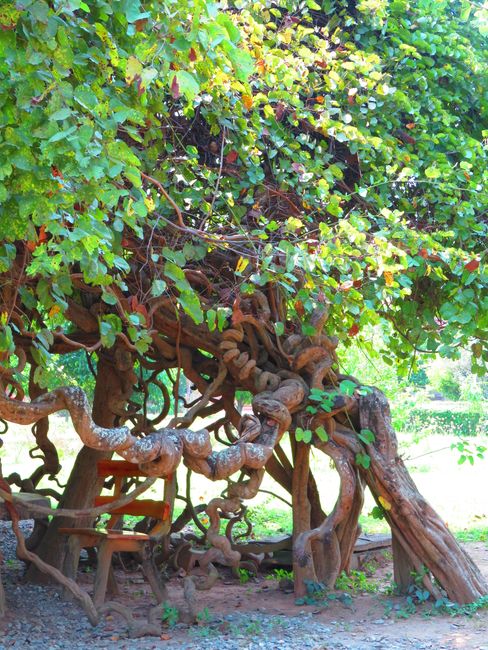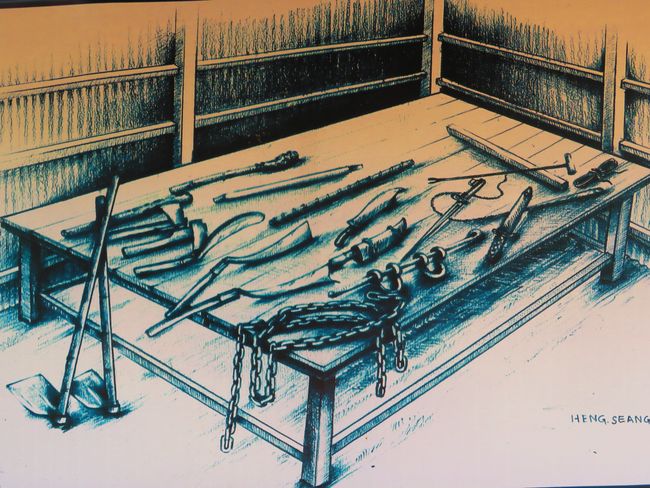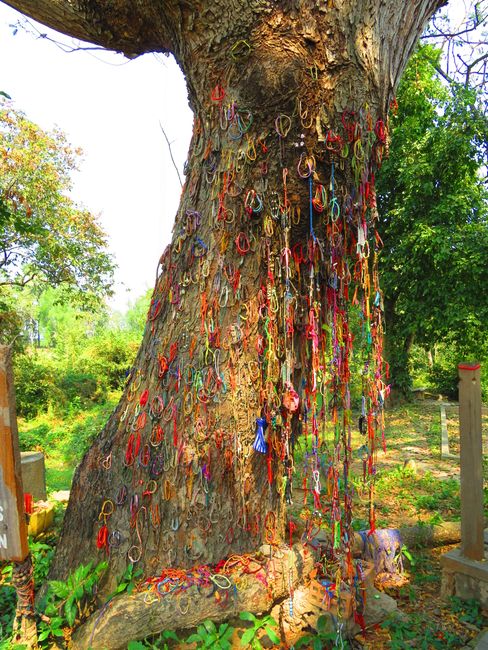2.2.2018 Killing Fields / Choeung Ek
प्रकाशित: 02.02.2018
समाचार पत्रिका के लिए सदस्यता लें
After visiting S-21 Prison yesterday, we wanted to dedicate today to the Killing Fields. The prison and the Killing Fields are connected. The detainees from S-21 Prison were taken to Choeung Ek after their forced confessions, where they were brutally killed. No one was spared. Not even children and babies.
At 10:30 a.m., we enter the site through a gate. On the right-hand side is the ticket booth. A ticket costs 6 dollars per person. It includes an audio device with the desired language. It is quiet and you can only hear the birds chirping. The tour begins at the stupa, which is filled with more than 5,000 skulls. The sight is somehow disturbing and interesting at the same time. There are a total of 18 stops where you learn in a gripping way what has happened and been found in this Killing Field. The man in the ear repeatedly asks you to sit down, take your time to listen, and think about what you hear. Each person does the tour on their own, even if you came as a group. Everyone also follows the rules, which means being quiet and treating the memorial site with respect.
Choeung Ek is a former fruit orchard and Chinese cemetery. It is the most well-known of the so-called Killing Fields, where the Khmer Rouge regime executed about 17,000 people between 1975 and 1979. Mass graves with 8,895 bodies were discovered here after the fall of the dictatorship.
To save ammunition, the condemned were not shot in this execution center but beaten to death with iron bars, axes, or similar items. Particularly cruelly, children were taken away from their mothers and beaten to death against a certain tree. This tree is known as the Killing Tree and is now covered with colored bracelets in memory of all the children who lost their lives here.
Visiting this site is emotionally touching and at times unsettling, but I find it important when visiting this country. After two and a half hours, the tour is finished and we leave a statement in the visitor's book, which is available at the exit. Thoughtfully, we make our way back to the hotel.
समाचार पत्रिका के लिए सदस्यता लें
उत्तर





